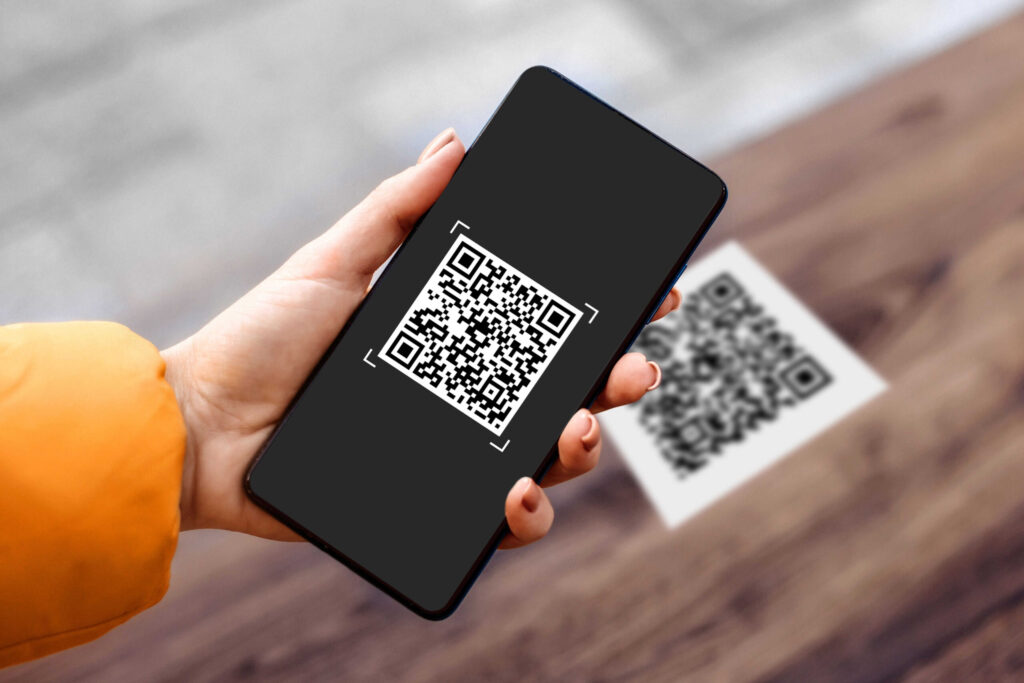In today’s data-driven world, accurate Barcode asset management is crucial for businesses in retail, healthcare, manufacturing, and logistics. As companies grow, hand-keeping becomes less efficient and more likely to make mistakes. Barcode scanning technology offers a quick, cheap, and accurate way to keep track of goods in real time.
This blog post will discusses how barcode reading technology works, helps businesses stay organized, and streamlines operations, making asset tracking essential for success in today’s fast-paced business environment.
Learning about technology for reading barcodes
Barcodes are an easy but useful way to identify and keep track of things or assets. A barcode is basically a way for computers to read data. It usually looks like a pattern or set of black and white lines with different lengths. Each pattern is unique and relates to a different piece of information about an asset, like its ID, location, or specs. The pattern is read by a barcode reader, which turns the data into a digital form that asset tracking software can use.
Different kinds of barcodes
Barcodes come in two main types that help you keep track of things:
1. Linear Barcode
The most popular type of barcode is the linear barcode (1D). You can see that they are made up of different-width black lines going up and down. There is either a number or a letter code on each line. Although linear barcodes can only store a small amount of data, they are very common for tasks that need to store simple data like item numbers or serial numbers.
2. 2D barcodes:
These are not the same as linear barcodes; they can store more complex information in a smaller area. Patterns of dots, squares, or other shapes set up in a flat place make them up. A 2D barcode is like a QR code. These barcodes can hold more information, like product descriptions, URLs, or other unique information
Machines that read barcodes
These are the things that read barcodes and turn them into digital info. A barcode reader can be any of the following types:
People can read barcodes by hand with handheld scanners, which are small and easy to carry around.
Set-Mount Scanners: These scanners are fixed in place and are often used in places where scanning needs to happen quickly, like production lines.
Cell phones and computers that have scanners built in: Many smartphones and computers now come with barcode readers that can be used in many ways by businesses.
When you scan a barcode, the data is sent to a computer or system that keeps track of assets. They process it and use it to keep real-time records of goods up to date.
Why accuracy is important when tracking assets
Businesses can suffer a lot if they can’t keep track of their assets correctly. It can lead to wrong inventory counts, lost things, late shipments, and higher costs of doing business. In some fields, like healthcare or flight, inaccurate tracking of assets can also lead to safety risks and rules breaking.
When businesses don’t keep track of their assets correctly, they often run into the following problems:
- Inventory Mismatches: If a business doesn’t have a good system for keeping track of its assets, it may find that its real inventory amounts are different from what it shows in its system. This can cause a lack of stock, too much stock, and lost sales.
- Misplaced or Lost Assets: It can be very expensive to lose track of valuable assets in fields like production or logistics. When materials or equipment are lost, they can stop activities and cause big financial losses.
- Inefficient Use of Resources: If you don’t keep track of your assets correctly, you might not be using your resources as efficiently as you could be, which could mean that equipment isn’t being used or production processes are held up.
- Concerns about compliance: A lot of different fields have to follow strict rules when it comes to managing assets. Not following these rules can happen because of bad tracking, which can lead to fines or other legal effects.
Businesses can deal with these problems and get better at keeping track of their assets by using barcode reading technology.
How barcode scanning technology makes it easier to keep track of things
Barcode reading technology has many benefits that help businesses keep better track of their assets more accurately and quickly. How it works:
1. Getting rid of mistakes made by hand
People make mistakes when they manually track assets by entering item information or writing down serial numbers. Employees might type in the wrong information, skip over records, or lose information. Over time, these mistakes add up and cause asset records to be wrong.
By instantly capturing asset information, barcode scanning gets rid of the need to enter data by hand. Barcode scanning is much more accurate than typing in the information by hand because the system reads and enters the right information directly from the barcode. This makes sure that asset records are changed correctly and lowers the chance of making mistakes when entering data.
2. Capturing data in real time
One great thing about barcode scanning technology is that it can get new data and change old data in real time. When a barcode is scanned, the data is sent quickly to the asset tracking system. This makes sure that the counts of inventory, the locations of assets, and other important data are always correct.
Businesses can make choices based on the most up-to-date information when they collect data in real time. In a warehouse, for example, workers can quickly see when stock levels are low and reorder things before they run out. This keeps operations running smoothly and avoids stockouts.
3. Better visibility of assets
Businesses can see where their assets are and what their state is better when they scan barcodes. The system keeps track of where an asset is at all times, so companies can see how it moves through the supply chain or within the building. This amount of visibility is especially important in fields like manufacturing and logistics that deal with a lot of high-value assets.
Businesses can also improve their inventory control by being able to see their assets better. For instance, businesses can use Barcode asset management data to keep track of which assets are being used most and which ones are just sitting there. This helps you make choices about how to allocate assets, when to do maintenance, and how to buy things based on data.
4. Asset audits that are faster and more accurate
Regular audits of assets are necessary to keep correct records and make sure that regulatory requirements are met. But standard auditing methods that involve counting and entering data by hand can take a long time and make mistakes.
Asset checks are faster and more accurate when barcode scanning is used. As employees move around, they can scan assets, and the information is stored immediately in the system. This cuts down on the time needed for audits and makes sure that records of assets are correct, which helps companies avoid expensive mistakes and compliance issues.
5. Integration with software for managing assets
Barcode scanning technology is often combined with tools for managing assets to make tracking them easier all around. Businesses can store, manage, and look at data about their assets with this software. This includes information about inventory levels, maintenance plans, and how the assets are used.

When businesses combine barcode scanning with asset management software, they can handle a lot of the work that goes into keeping track of assets. For instance, when an asset is scanned, the software can automatically send out alerts when stock levels are low, plan repair tasks, or make reports on how the asset is being used. This amount of automation makes managing assets more accurate and faster.
Putting barcode reading technology to use
For businesses to successfully use barcode reading to keep track of their assets, they need to take a few important steps:
Barcode reading has significantly improved asset tracking by making it easier and more accurate to track assets in real-time. Businesses can enhance operations, reduce costs, and enhance decision-making by eliminating manual errors, ensuring data accuracy, and obtaining more information about asset movement.
Linear barcodes are ideal for basic information tracking, whereas 2D barcode methods excel in storing detailed asset information. Choose scanners based on factors such as scanning speed, range, and longevity. Connecting the barcode reading system to asset management software is crucial for real-time data collection, reporting, and analytics. Offering adequate training to workers on how to use barcode scanners is vital for ensuring correct technology usage and data collection.
Regular maintenance of equipment, including barcode readers and printers, is essential for their optimal functionality. Having a maintenance plan can preserve tools in good condition and decrease the time required for repairs. Barcode scanning is a crucial tool for businesses in retail, manufacturing, healthcare, and transportation, as it enables them to remain competitive and precise in today’s market.


